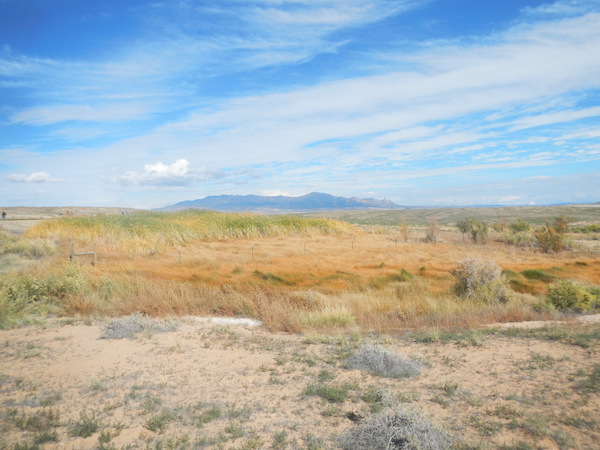Climate Change
What you are putting in the air, what you are putting in the water, what you’re putting in the ground—all this chemical contamination—it is causing an imbalance of nature, causing this drought and climate change. Ute Mountain Ute Tribal Elder
Click here to view the Ute Mountain Ute Climate Action Plan for 2020.
Our climate is changing, because the earth is warming. When we burn fossil fuels for energy like oil, natural gas, and coal, we release carbon dioxide. Carbon dioxide is a gas that traps heat. Our planet has warmed 1.8 degrees in the last century. Tribal lands have experienced severe, sustained drought events that cause devastating impacts to local livelihoods and environmental resources. Community members depend on natural resources to maintain their cultural practices, identity, and sovereignty as a people. Increases in temperature, reduced precipitation, changes in seasonality, higher temperatures, and health concerns such as asthma and allergies, highlight the need for planning. Climate change is expected to worsen these impacts in this area.
It is important that we take responsibility and keep future generations in mind as we look for solutions. Ute people have a demonstrated history of adapting and solving difficult problems. The mission of the climate change program is to ensure that our community and natural landscapes remain healthy in the face of a warming climate.
A Tribal Climate Resilience Program was established nationwide during President Barack Obama’s administration. The program provides funding for tribal climate change adaptation planning and capacity building. The Ute Mountain Ute Environmental Programs Department, in collaboration with Colorado State University, applied for this funding and established a climate change program in 2017.
A community-based assessment of the Ute Mountain Ute Tribe’s vulnerability to climate change was conducted June 2017-January 2018. Questions about climate and weather related-changes and the resulting impacts were asked to twenty nine elders and five natural resource managers. The interview results show that there is a growing concern about the changing climate. The vulnerability assessment was shared with the community and is now being used in the development of a Climate Action Plan.
For additional information contact Marjorie Connolly, Climate Change Program Manager, via email or phone (970)-564-5342.

